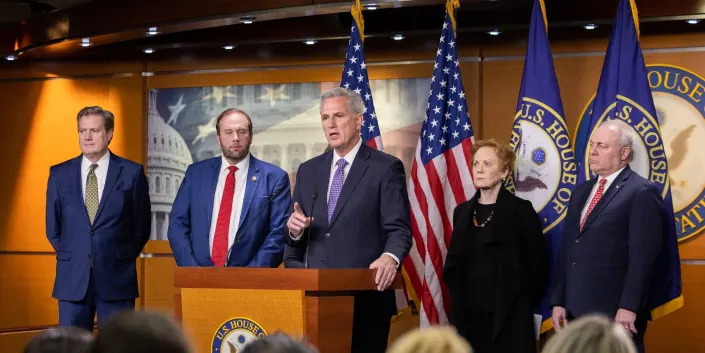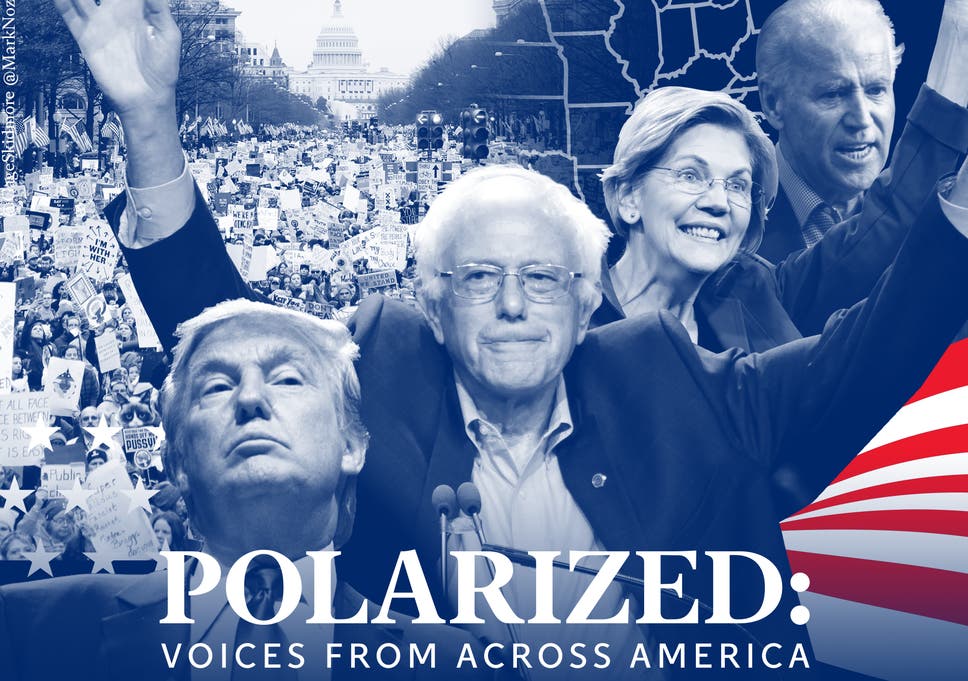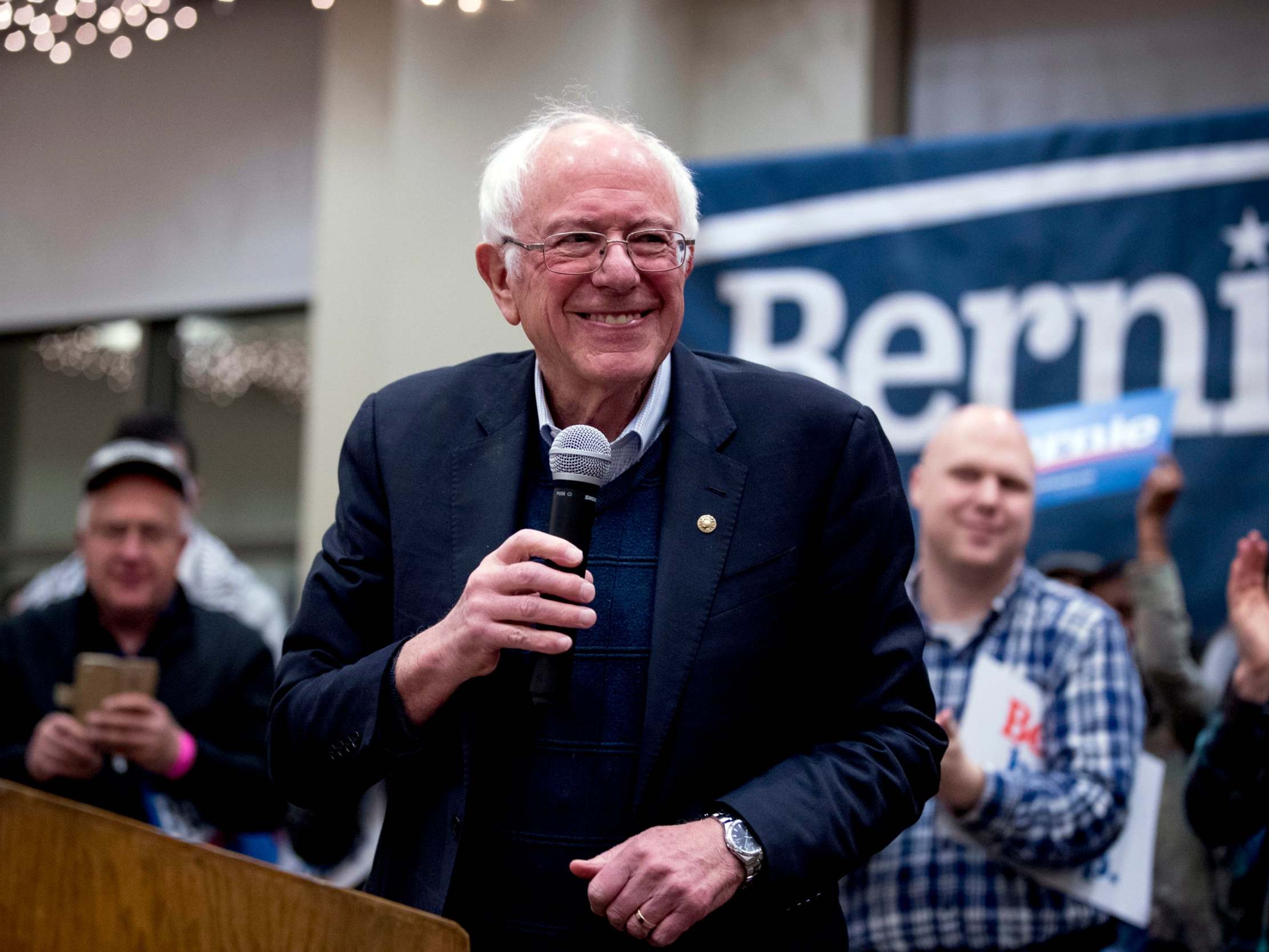
An electricity meter shortly after it was installed at the Jobos Bay National Research Reserve in Salinas, Puerto Rico, May 3, 2022. Puerto Rico privatized its electricity production on Jan. 25, 2023, selecting Genera PR to take over the operation and maintenance of state power generation units in the U.S. territory as part of an initial $22.5 million annual contract. (AP Photo/Carlos Giusti, File )
DÁNICA COTO
Wed, January 25, 2023 at 10:54 AM MST·4 min read
SAN JUAN, Puerto Rico (AP) — Puerto Rico privatized its electricity production on Wednesday, selecting Genera PR to take over the operation and maintenance of state power generation units in the U.S. territory as part of an initial $22.5 million annual contract.
The announcement comes as the island struggles to rebuild its crumbling power grid amid chronic power outages blamed in part on what Gov. Pedro Pierluisi called “archaic and unstable” generation units.
“I am sure that we are on the right track to give our people the reliable and affordable energy system that they deserve,” he said.
Genera PR is a subsidiary of New York-based New Fortress Energy, which works closely with Shell Oil and other oil and gas producers. Genera also will handle contracts related to fuel purchases for the island’s 12 power facilities as part of a 10-year contract with Puerto Rico’s government.
“Today is a historic day,” said Secretary of State Omar Marrero, who noted that recent hurricanes have revealed the deterioration and critical state of the island’s power grid.
Puerto Rico's generation units, some of them more than 50 years old, have suffered blackouts at rates five times worse than the industry average in recent years, producing less than half of the power the government had forecast.
“Decades of mismanagement and neglect have left Puerto Rico with an expensive, inefficient and dated energy system,” said a federal control board that oversees Puerto Rico's finances, in a statement supporting the contract awarded to Genera PR.
Many Puerto Ricans remain wary of this process, well aware that privatizing the transmission and distribution of power in June 2021 did not lead to an improvement in issues including the length of outages, which has worsened. The power situation on the island is so dire that the U.S. government recently announced it would supply temporary electric generation via barges and land-based generators.
Another concern is that high power bills could become even more expensive under the new public-private partnership, concerns that officials brushed aside as they noted that Genera PR will receive incentives to generate savings, of which 50% will be passed along to consumers.
The company will receive $22.5 million annually for the first five years of the contract, a payment that will drop as Puerto Rico permanently shutters generation units amid a push for more renewable energy sources. Genera PR also will receive up to $15 million during a transition period of 100 days, and up to $100 million a year in incentives, a payment that also will drop as units are shut down.
Wes Edens, founder and executive director of New Fortress Energy, said Genera PR would begin operating by mid-year.
He said power outages are unacceptable and noted that electric bills in Puerto Rico are “simply too high.”
“While we recognize the challenges that are before us…we believe the opportunities here…are tremendous,” Edens said.
Until Wednesday, the government had refused to release a copy of the contract or name the company chosen even as the governing board of Puerto Rico’s power company and the island’s Public-Private Partnerships Authority had approved of it after meeting behind closed doors.
The sole vote against the contract came from Tomás Torres, a member of the governing board that represents the public’s interest.
He said such contracts normally are done with broad citizen participation “given the impact it will have on all sectors that make up public interest." He also noted that Genera PR will have monopoly power as the sole provider of electricity on the island.
Torres also warned that the contract represents additional costs for the state power company, which holds some $9 billion in debt — the largest of any Puerto Rican government agency — and remains mired in an acrimonious battle with creditors as it tries to emerge from bankruptcy. It remains to be seen how much of that debt consumers will have to pay.
Edens said a top priority will be saving on fuel purchases, noting that New Fortress Energy has a big portfolio of oil producers and is on the verge of producing its own fuel sources.
New Fortress Energy opened a natural gas facility in Puerto Rico in 2020. Puerto Rico’s Electric Power Authority later accused the company of violating its contract by supplying less natural gas than it promised, forcing the state power company to use more expensive diesel at generation units, a cost that has not been reimbursed.
Puerto Rico’s governor said that contract remains in good standing. Meanwhile, that issue remains under review by the island’s Energy Bureau.
Nicole Acevedo
Wed, January 25, 2023
SAN JUAN, Puerto Rico — A new private company will take over power generation units owned by the Puerto Rico Electric Power Authority, the public corporation currently in charge of generating energy on the U.S. territory.
Genera PR, an independently managed subsidiary of the New York-based energy company New Fortress Inc., has been awarded a multimillion-dollar 10-year contract to operate, maintain and decommission the power generation units on the island.
The power generation equipment in Puerto Rico, plagued by ongoing blackouts and decaying infrastructure, is on average about 45 years old — twice the age of those on the U.S. mainland. Some of them have been found to be six decades old. They’re mainly reliant on fossil fuels.
The company and the Puerto Rico Electric Power Authority (PREPA) are currently undergoing a transition process set to last 100 days. Genera PR is expected to formally start operating in July.
Officials in Puerto Rico have been taking steps toward privatizing power generation for some time. Genera PR's contract underwent various approval stages and the final one was announced Wednesday in a lengthy news conference.
Under the terms of the new partnership, the Puerto Rican government has agreed to cover up to $15 million in transition costs to Genera PR, officials said. Additionally, the company will be paid a yearly fee of $22.5 million during the first five years. The fee will decrease after the fifth year, up to a minimum of $5 million per year. The exact amount will be determined by the number of power plants removed during the forfeiture process.
"We continue advancing the transformation that we all want," Gov. Pedro Pierluisi said in a statement. "I'm confident that we are on the right track to give our people the reliable and affordable energy system they deserve."
Genera PR can also receive up to $100 million in incentives if it achieves savings in operating costs and complies with occupational safety, environment and fuel purchase guidelines, Fermín Fontanés Gómez, executive director of the Puerto Rico Public-Private Partnerships Authority, said during the news conference.
Fontanés Gómez emphasized PREPA will continue to be the owner of the power generation units, since Genera PR was only contracted to operate, maintain and eventually forfeit units.
Genera PR was one of two companies that submitted proposals to the PREPA, the agency in charge of administering the contract, during a two-year bidding process.
Officials said that of the two companies interested, Genera PR was willing to provide services at a lower cost, compared to its competitor. Genera PR's priorities also line up with local policies, they said, including Act 17-2019, which sets various benchmarks for Puerto Rico to achieve 100% renewable electricity by 2050.
Less than 4% of Puerto Rico’s power generation currently comes from renewable energy.
As Puerto Rico looks to transition to renewable energy, "this partnership will provide meaningful cost savings for consumers and businesses, improve reliability and reduce the environmental impact of an aging thermal generation system," said New Fortress's Chairman and CEO, Wes Edens, in a statement.
Skepticism amid frustration

Hurricane Fiona Hits Puerto Rico, Knocking Out Power Across The Island (Jose Jimenez / Getty Images)
A crowd gathered Wednesday outside Gov. Pierluisi’s mansion to protest the privatization and the new contract.
CAMBIO PR, a nonprofit group advocating more energy sustainability, said on Twitter that the hiring of Genera PR "confirms another expensive transaction full of conflicts of interest and a contractor that has broken contracts and laws."
New Fortress Inc., Genera PR's parent company, has previously sold fuel to the PREPA.
NF Energia LLC, a natural gas supply company and a subsidiary of New Fortress Energy Inc., received a procurement contract in 2019 to sell natural gas to PREPA to power two generation units in San Juan. The $1.5 billion contract is valid until March 2024, according to data from the Comptroller’s Office in Puerto Rico.
PREPA has alleged that the natural gas company has failed to comply with its obligations to deliver natural gas as agreed upon. A lack of natural gas has forced the power authority to burn more expensive fuels, resulting in an additional cost of $34.5 million, Puerto Rico's largest newspaper, El Nuevo Día, reported.
Details of the new contract were explained during the news conference Wednesday morning, and the official document was made public in the evening.
Genera PR's contract is the result of a privatization process that started in 2017, after the PREPA declared bankruptcy following years of low liquidity, limited access to capital markets and the burden of long-term debt.
In that same year, Puerto Rico was hit by Hurricane Maria, one of the biggest and deadliest natural disasters on U.S. territory in 100 years, further deteriorating the already fragile and disinvested power grid.
As part of an ongoing privatization process, in 2021 the PREPA relinquished the island’s power transmission and distribution system to Luma Energy. The consortium made up of Atco in Canada and Quanta Services Inc. in Texas started operating on the island in June 2021.
At the time, government officials promised the partial privatization of the power grid under Luma would improve electric services, but the territory's residents are still grappling with frequent outages.
After Hurricane Fiona hit Puerto Rico in September, the grid was unable to withstand the Category 1 storm, triggering an islandwide blackout that took more than two weeks to undo.
Power customers in Puerto Rico have seen seven electric rate increases last year, even though people in Puerto Rico already pay about twice as much as mainland U.S. customers for unreliable service.
Luma Energy says it has reduced outage frequency by 30% over the past year and has initiated 251 federally funded projects to permanently rebuild the patched-up grid following hurricanes Maria and Fiona.
PREPA's bankruptcy remains ongoing as the public corporation attempts to restructure its nearly $9 billion public debt, the largest of any government agency.
This article was originally published on NBCNews.com



















